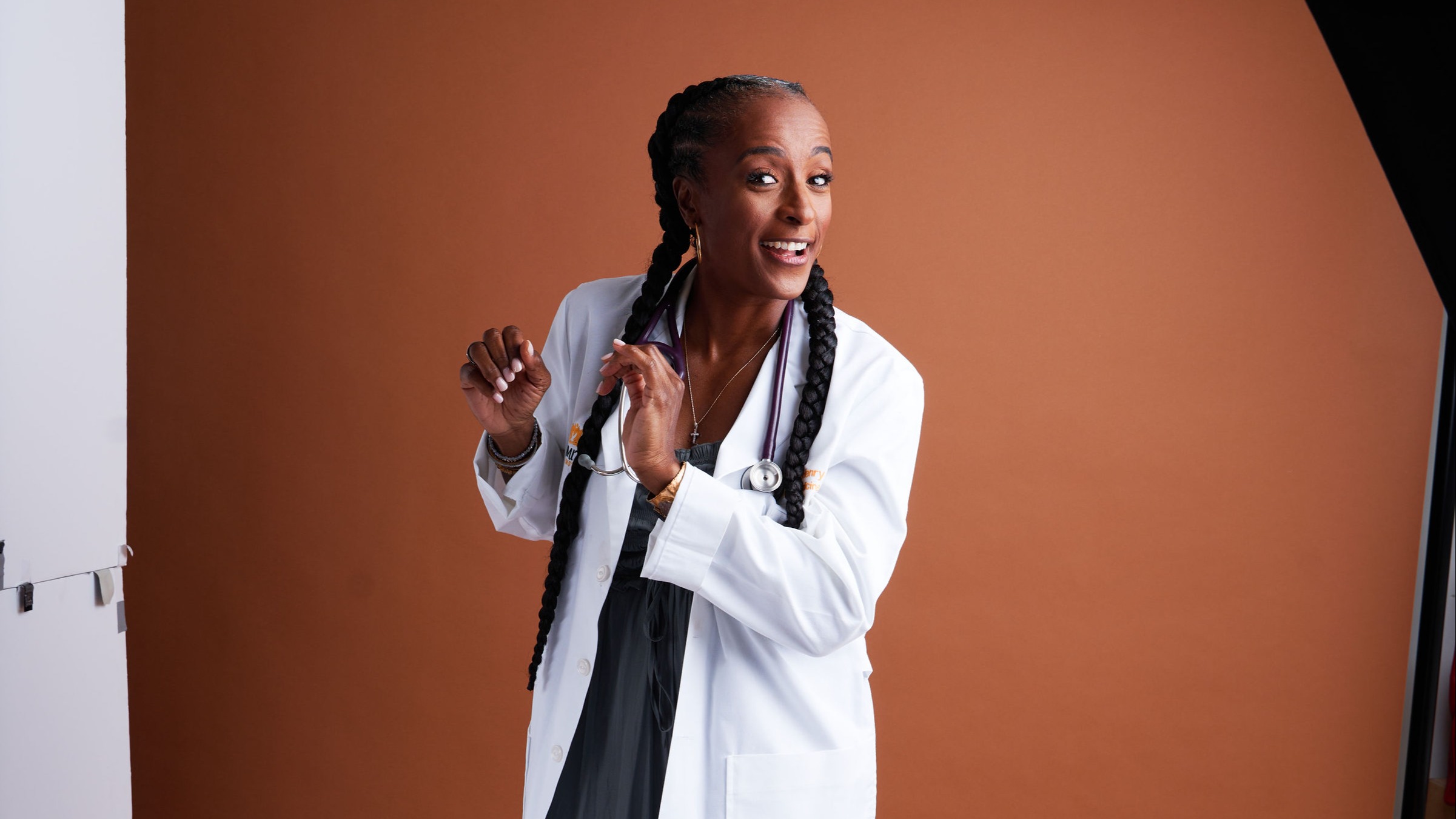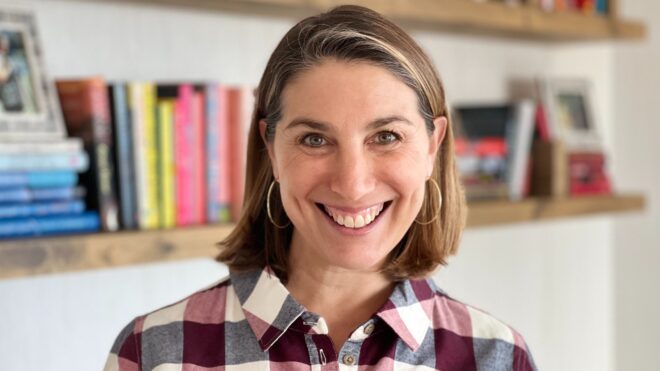
As a young child, Tamika Henry, MD, was diagnosed with juvenile rheumatoid arthritis and spent time in the hospital. By kindergarten, she declared to her parents that she would become a doctor so she could pay it forward. The first in her family to earn a medical license, Dr. Henry pushed herself past naysayers and sacrificed to achieve her goal. Today, she’s on a mission to break generational patterns and not only educate her own family about the importance of being proactive about your health and advocating for yourself, but all families. A board-certified family physician based in Los Angeles, Henry sees patients virtually through her practice, Unlimited Health Institute.
“As a young child, I was often in and out of the hospital with flares of juvenile rheumatoid arthritis,” says Henry. “I remember having lots of pain and wanting to go home. There was constant prodding and pricking in the hospital. I still flinch at times when I have my blood drawn, which is from the IVs and blood draws from when I was a child. To this day, I can recall the candy stripers coloring with me when my mom was not there and the reminders that no matter what, I was and am never alone.”
She had no idea what to expect years later as she embarked on her journey to medical school. “In high school, a teacher told me I had too much personality and was too athletic to go to medical school,” she says. “In college, I got a C in physics and my adviser told me that I would never get into medical school and to pursue another path. In medical school, the statistics class was one of my most challenging classes that made me question whether I would make it out of and actually become a physician.”
She relied on her “never give up attitude and the continued hard work approach no matter what,” because nothing was going to stop her from earning her degree.
Today, she follows a systems biology–based approach that focuses on identifying and addressing the root cause of disease. “As we think about health, we need to have a comprehensive approach,” says Henry. “Functional medicine provides a root cause approach to health. We must move away from the quick fixes and the band-aids and rather consider what are the underlying root causes that can be contributing to a person's symptoms. A comprehensive approach takes into consideration food choices, physical activity, genetics, sleep routine, stress, mental health, gut health, environmental factors, medications, and nutrient deficiencies, to name a few. As a functional medicine provider, there is much time allocated before, during, and after the initial visit to determine the best approach for a person as they embark on the journey to better health. What’s important is to meet the person where they are as they pursue healthier lifestyle changes.”
She continues, “I’ve always felt that if I can impact one person in a family and teach them, then that person can share what they’ve learned with members of their family and then share with others in their community. Then over time information about improving health can slowly continue to spread.”
It’s important for Henry — mom to a 13-year-old and a 15-year-old — to act as a voice for Black families. “Unfortunately, there has been an unconscious bias that Black people are strong and can handle a lot. For example, some have reported that their pain is a 8 out of 10 on a scale of 1 to 10, and it’s thought it’s not too bad and given Tylenol and ‘told this should pass.’ Unfortunately, that level of pain should have been investigated to a greater depth as to why the pain exists and is persistent.”

She notes that when a patient is communicating their symptoms, they may be dismissed as if the concerns are not as serious as they are being reported. “It’s very important to be involved and raise your voices,” says Henry. “If you see something, say something. If you hear something, say something. As we are present, involved, and communicative, there is an increased likelihood that our children as well as us will not be missed or pushed to the side. People respect what you inspect. Therefore, we must educate ourselves and our children so that we too can be heard and assisted where needed.”
She’s teaching her own children the importance of making healthier choices and being physically active. “I teach members of my family and various groups about ways to be healthy and things to consider as it relates to making lifestyle changes. I expose people to different kinds of healthy foods and that healthy food doesn't taste bad. I remind people that making small steps forward, even if it’s 2 mm of movement, is still progress. And most importantly, I remind my staff and myself to meet people where they are in their health journey.”
She wants families to stop being reactive and start being proactive about their health. “Genes load the gun, they do not pull the trigger,” says Henry. “Get rid of the thoughts that if a disease or medical condition exists in your family that you are destined to get it. Stop and ask, ‘What are you currently doing to improve your overall health?’ You are not left to just sit back and say, ‘It’s in my family so there’s nothing I can do about it.’ Be determined to live the healthiest, best life that you can.”
Henry says we need to “stick with the basics” to stay healthy:
- Eat balanced meals of protein, carbs, and fats.
- Exercise.
- Drink water.
- Practice stress management such as prayer, journaling, therapy, meditation, and breath work.
- Establish healthy relationships.
- Be aware of your thought life (pursue mental well-being).
- Continue to pay attention to your body and listen (for example, rest when you’re tired).
- Support your immune system: eat clean (avoid processed foods), work on sleep hygiene, include physical activity and a healthy thought life.
- Have fun.
- Be present.
Henry encourages others, “Remember: You know your body better than anybody else. Never stop working on you — not that you have to, but that you get to.”







